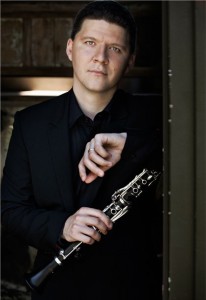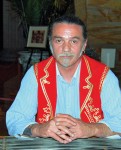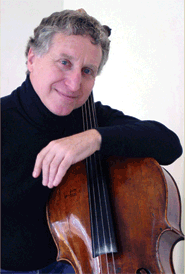MAGYAR!
Close Encounters With Music
Mahaiwe Performing Arts Center
Sunday, April 27, 2014
Review by Seth Rogovoy
(GREAT BARRINGTON, Mass.) – A brilliantly curated and executed chamber music concert on the theme of Hungarian- and Gypsy-influenced art music took place at the Mahaiwe Performing Arts Center on Sunday, as part of the Close Encounters With Music series directed by cellist and impresario Yehuda Hanani.
A wide-ranging bill of fare included traditional Hungarian folk music and works by Liszt, Brahms and Bartok, all theoretically united by a reliance on Hungarian and Gypsy motifs – or, as Hanani suggested in his colorful and pitch-perfect opening remarks – works that spoke with a Hungarian accent.
The highlight of the concert, to these ears, was a trio rendition of Bela Bartok’s Contrasts for Violin, Piano and Clarinet. Besides being a showcase for each of the instrumentalists, the piece was Bartok at his best – with roots in folk tonalities given expression with classical dynamics and a freewheeling, urban spirit propelled by jazz. Originally commissioned by none other than Benny Goodman, the piece is a distant cousin to George Gershwin’s “Rhapsody in Blue,” yet sounding utterly and at times shockingly contemporary, like something from the pen of Osvaldo Golijov or Paul Schoenfield, neither of whom are imaginable without Bartok as a predecessor.
All three musicians acquitted themselves well in the piece, although clarinetist Alexander Fiterstein really took the prize – not surprising in a piece written for Goodman. The work’s odd, jerky rhythms and complex meters and modes were full of humor and verve, really making avant-garde music out of a fusion of classical and folk played like bebop even though it was composed before there even was such a thing.
Musician Cosmo Gorcsi set the tone for the evening in his introductory set, playing a series of traditional folk tunes on cimbalom, a kind of Hungarian hammered dulcimer that in a sense is a piano without a keyboard, with the strings struck directly by mallets, to the same effect.
A Hungarian Rhapsody by David Popper followed the Bartok, performed by pianist Lydia Artimiw and Hanani, whose playing was, indeed, rhapsodic and playful, in what was a salonesque entertainment.
The second half of the concert offered works by Liszt and Brahms that, as one might expect, were more removed from the source material than the Bartok. Liszt’s Hungarian Rhapsody No. 3 in B-flat major, performed as a solo by Artimiw, was, as written, a bit overwrought and sentimental, perhaps one man’s idealization of the power of the folk. The Brahms Piano Trio No. 3 in C major Op. 87, performed by Artimiw and Hanani joined by violinist Erin Keefe, also tended toward the effusive and at times bombastic, especially in the piano parts, although Keefe gamely tried to ground the piece in the more astringent tonalities of Gypsy music, while Hanani simply let the music do the talking, allowing rests and pauses to speak as loudly as notes.
In all, the concert was a showcase not only for how classical music, and chamber music in particular, has always conversed with the music of its particular place and time, and not only for Hungarian and Gypsy music in particular, but, finally, for how essential the Close Encounters With Music series is to the cultural life of the Berkshires, in its commitment to virtuosity and artistic vision, and in its unique way of making music matter far beyond the notes on the page.



